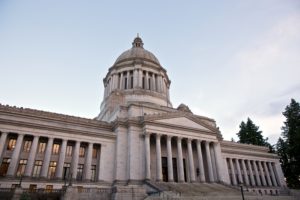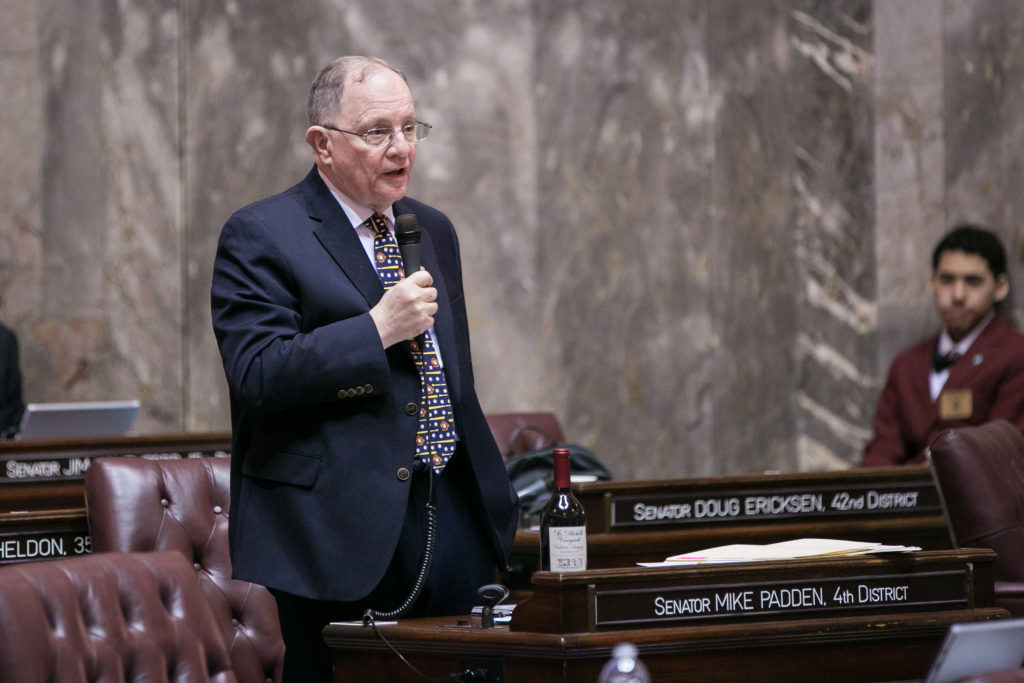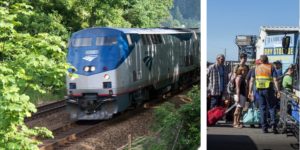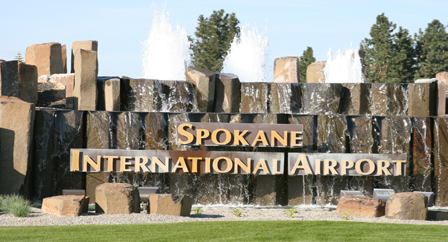The following newsletter was sent to subscribers to Sen. Padden’s Report From Olympia, July 6, 2017. To subscribe to Sen. Padden’s newsletters, click here.
Legislature OK’s budget, but overtime continues
Dear friends and neighbors,
Last week was an important one for the Washington Legislature – but our session isn’t over yet. The House and Senate reached agreement on a budget, and passed it mere hours before the start of the new fiscal year. Unfortunately, the final agreement contained so many compromises I was unable to support it – see details below.
The budget is the central bill of any session, and its passage usually signals that the Legislature is ready to wrap up its business and go home. This year is different. The Legislature remains in session because we still have not reached agreement on a key water-supply issue for owners of rural and suburban properties who are unable to hook up to city water. The state Supreme Court’s misguided Hirst decision makes it difficult, if not impossible, for them to drill new wells. A Hirst fix is a top priority for the Senate, and we are insisting that it pass before we will vote on the capital budget, which funds construction projects throughout the state.
Other important pieces of unfinished business include our Department of Corrections reform measure and a bill that increases sentences for high-profile crimes, including residential burglary and the property crimes that are such a concern for our area. The finish line is in sight, but we still have more work to do before we can call it a year.
Sen. Mike Padden
The good and the bad in this year’s budget
 The operating budget is the most complicated bill the Legislature passes each year, with hundreds of pages that spell out precisely how state government is to be funded, and requiring the passage of other bills to implement its provisions. The good news is that the Senate defeated proposals for billions of dollars of increased taxes, including new taxes on capital gains income and increases in business and real estate taxes. The budget also reduces taxes for most manufacturers in Washington, giving them the same preferential tax business and occupations tax rate as Boeing and others in the aerospace industry.
The operating budget is the most complicated bill the Legislature passes each year, with hundreds of pages that spell out precisely how state government is to be funded, and requiring the passage of other bills to implement its provisions. The good news is that the Senate defeated proposals for billions of dollars of increased taxes, including new taxes on capital gains income and increases in business and real estate taxes. The budget also reduces taxes for most manufacturers in Washington, giving them the same preferential tax business and occupations tax rate as Boeing and others in the aerospace industry.
But the final $43.7 billion deal represented a compromise with the House, and some things are hard to swallow. State spending has ballooned nearly 25 percent in just seven years, and this budget continues this unsustainable growth in state spending. State-government spending will rise by nearly 14 percent at a time when the budget for the city of Spokane Valley is growing just two percent. State tax collections have increased $2.6 billion since our last budget in 2015, yet we are increasing spending still further, by imposing the sales tax on out-of-state merchants doing business in Washington via the Internet. Not only is this new tax likely to be challenged in court, it also ignores the need for tax relief. Instead of spending every dime we can, we ought to be talking about returning some of that money to the people who pay it.
Big government is a winner in this budget. It expands the state bureaucracy by creating a new Department of Children, Youth and Families – a wrongheaded approach to the state’s troubled child-welfare system that surely will become a great drain on state finances in the years ahead. The agreement also launches a new paid-family-leave program that will increase costs for employers and damage job creation in Washington state.
Particularly troubling is the fact that that the final agreement eliminated a provision we passed in the Senate that would have made real improvements in women’s health, by reprogramming $1.7 million from abortion providers to women’s breast and cervical-cancer screenings.
Sometimes compromises can go too far, and they certainly did this year. With reluctance, I voted against the budget, one of 10 in the Senate who voted no. It often is said that a state budget is a declaration of principles. True enough. We should not abandon them in the rush to the exit door.
Hirst heads list of unfinished business
Several important issues remain to be resolved before the Legislature can declare its work done for the year. The most important is the Hirst fix. The Supreme Court’s unfortunate 6-3 decision last fall overturned decades of water law that made it easy for property owners to drill new wells, without obtaining costly and cumbersome water rights. Now property owners must obtain expensive studies to prove their new wells won’t harm overall water supply. County officials must evaluate each application one-by-one, and many protest they lack the expertise to judge. The decision amounts to a moratorium on development outside of urban areas, and it already is having a severe impact on those who require water in order to develop their land.
In the Senate we have made a Hirst fix a top priority — we have repeatedly passed a bill to restore pre-existing water law. The House is more sympathetic to environmental groups and other interests that wish to restrict development outside of cities. Efforts to reach a compromise stalled last Friday as the House insisted on provisions that would dramatically increase costs for property owners. The Senate put its foot down, halted consideration of the capital budget, and chose not to adjourn. The capital budget pays for construction projects throughout the state, and is of vital importance to every legislator. By declaring Hirst comes first, the Senate shows it means business, and sends a message the House cannot ignore.
DOC reform, tougher sentences hang in balance
Because the Legislature remains in session, we have another chance to pass two important bills that emerged from the Senate Law and Justice Committee but did not receive votes in the House. One is our Department of Corrections reform bill, SB 5952, which enacts recommendations made by the Senate Law and Justice Committee after its investigation last year of the early release of thousands of dangerous felons. The other is an omnibus crime bill, SB 5934, which increases sentences for habitual property offenders, residential burglary, and malicious motor vehicle offenses. The bill also creates an identicard program for newly released offenders, and makes other changes to sentencing rules.
It was a shock to learn Friday evening that House leaders were refusing to bring these bills to the floor for a vote. Under ordinary circumstances, this last-minute rebuff in the House would have killed the legislation. But House leaders did not reckon with the fact that the Legislature would remain in session. The extended overtime gives us another opportunity to ensure these bills win passage this year.
Derailment hits close to home
A derailment of the Amtrak Cascades left passengers looking for alternate transportation Sunday.
Of course the Amtrak Cascades is a train, but its operations are so linked to Olympia we might also call it a ship of state. Oregon and Washington help pay for operations, nearly a half-billion dollars in public money has been spent to upgrade Washington trackage and other infrastructure, and three of the five trainsets are state property. All of which makes Sunday’s derailment near Steilacoom a state-level concern. But the matter becomes harrowing when you learn a family member was aboard. My sister Nancy was among the 276 passengers who were jolted when the train ran off the rails at the Chambers Bay drawbridge. Though the engine landed on its side, the passenger cars remained upright in the dirt, with a list of just a few degrees. My sister was unhurt, but it certainly is a reminder that danger can befall any of us.
Direct flights inaugurated to Dallas/Fort Worth
Now that American Airlines has launched nonstop service to the Dallas/Fort Worth airport, we can be sure the Spokane Indians will be happy. Our single-A farm club feeds the Texas Rangers. The new route, launched this week, means Spokane now has connections to more than a dozen hub airports between the Pacific Coast and the Great Lakes. Easy air connections are critical to economic development — and they are a measure of the growing strength of our local economy.
Contact us
If you have a question or concern about state government, please do not hesitate to contact our office. We are here to serve you!
Phone: (509) 921-2460
Street address: 11707 East Sprague Ave., Suite 305, Spokane Valley, WA 99206
Email address: Mike.Padden@leg.wa.gov














